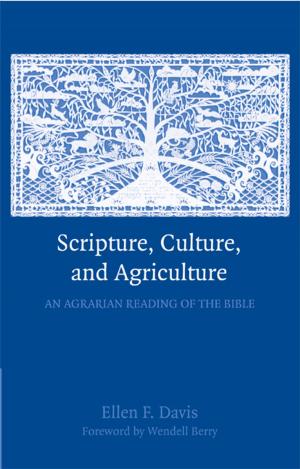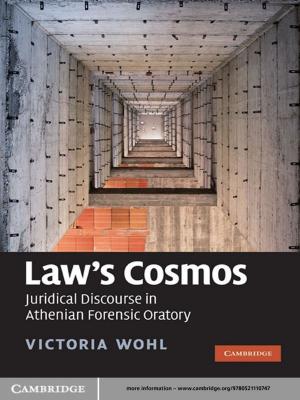Biblical Narrative and the Formation of Rabbinic Law
Nonfiction, Religion & Spirituality, Judaism, Bible & Bible Studies, Bibles| Author: | Jane L. Kanarek | ISBN: | 9781139949453 |
| Publisher: | Cambridge University Press | Publication: | July 31, 2014 |
| Imprint: | Cambridge University Press | Language: | English |
| Author: | Jane L. Kanarek |
| ISBN: | 9781139949453 |
| Publisher: | Cambridge University Press |
| Publication: | July 31, 2014 |
| Imprint: | Cambridge University Press |
| Language: | English |
This book presents a new framework for understanding the relationship between biblical narrative and rabbinic law. Drawing on legal theory and models of rabbinic exegesis, Jane L. Kanarek argues for the centrality of biblical narrative in the formation of rabbinic law. Through close readings of selected Talmudic and midrashic texts, Kanarek demonstrates that rabbinic legal readings of narrative scripture are best understood through the framework of a referential exegetical web. She shows that law should be viewed as both prescriptive of normative behavior and as a meaning-making enterprise. By explicating the hermeneutical processes through which biblical narratives become resources for legal norms, this book transforms our understanding of the relationship of law and narrative as well as the ways in which scripture becomes a rabbinic document that conveys legal authority and meaning.
This book presents a new framework for understanding the relationship between biblical narrative and rabbinic law. Drawing on legal theory and models of rabbinic exegesis, Jane L. Kanarek argues for the centrality of biblical narrative in the formation of rabbinic law. Through close readings of selected Talmudic and midrashic texts, Kanarek demonstrates that rabbinic legal readings of narrative scripture are best understood through the framework of a referential exegetical web. She shows that law should be viewed as both prescriptive of normative behavior and as a meaning-making enterprise. By explicating the hermeneutical processes through which biblical narratives become resources for legal norms, this book transforms our understanding of the relationship of law and narrative as well as the ways in which scripture becomes a rabbinic document that conveys legal authority and meaning.















